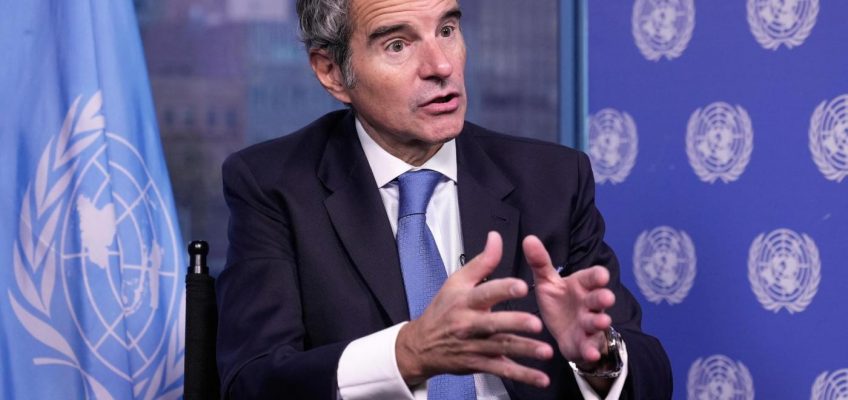By FARNOUSH AMIRI, Associated Press
UNITED NATIONS (AP) — The head of the U.N. nuclear watchdog told The Associated Press on Wednesday that Iran does not appear to be actively enriching uranium but that the agency has recently detected renewed movement at the country’s nuclear sites.
Related Articles
Putin says Russia’s nuclear-armed underwater drone was tested successfully
The US draws down troops on NATO’s eastern flank as Europe frets about a security vacuum
Hurricane Melissa leaves 25 dead in Haiti, causes widespread damage in Jamaica and Cuba
Israel’s military says ceasefire is back on as death toll from overnight strikes in Gaza reaches 104
US government allowed and even helped US firms sell tech used for surveillance in China, AP finds
Rafael Mariano Grossi, director general of the International Atomic Energy Agency, said that despite being unable to access Iranian nuclear sites, inspectors have not seen any activity via satellite to indicate that the Islamic Republic has accelerated its production of uranium enriched beyond what it had compiled before the 12-day war with Israel in June.
“However, the nuclear material enriched at 60% is still in Iran. And this is one of the points we are discussing because we need to go back there and to confirm that the material is there and it’s not being diverted to any other use,” Grossi said in an interview at the United Nations headquarters in New York. “This is very, very important.”
Grossi said, however, that inspectors have seen movement around the sites where the stockpiles are stored. Without additional access, the IAEA has had to rely on satellite imagery, which can only show so much, he said.
That stockpile could allow Iran to build as many as 10 nuclear bombs, should it decide to weaponize its program, Grossi warned. Iran long has insisted its program is peaceful, but the IAEA and Western nations say Tehran had an organized atomic bomb program until 2003.
Iran and the IAEA signed an agreement last month in Cairo to pave the way for resuming cooperation, including on ways of relaunching inspections of Iran’s nuclear facilities, that has yet to be implemented. The agreement came after Iranian officials suspended all cooperation with the U.N. nuclear watchdog following the war with Israel in which the U.S. struck several Iranian nuclear sites.
Since that agreement, a series of U.N. sanctions have been reimposed on Iran over what European parties to the 2015 nuclear deal have deemed Iran’s lack of compliance with the IAEA and the breakdown of peace negotiations with the U.S. That has complicated the tenuous relationship between the IAEA and Iran, but Grossi said that inspectors are inside the country as of Wednesday.
The Iranian mission to the U.N. did not immediately return a request for comment.


Leave a Reply